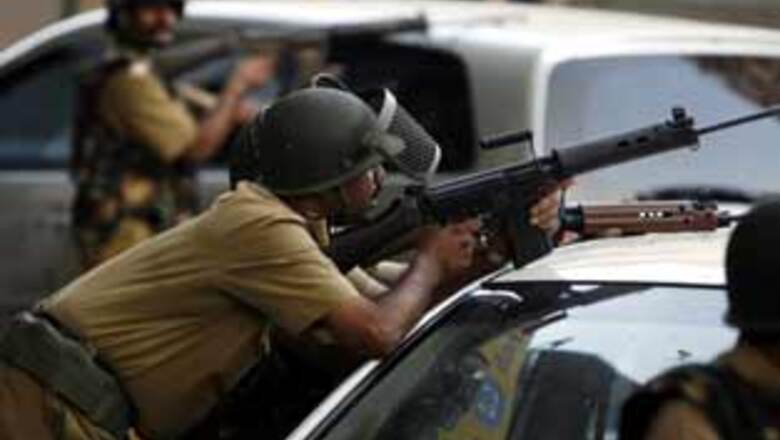
views
London: The head of Britain’s spy agency says terrorists who attacked Mumbai in November had “indirect connections” with individuals in Britain and warned that Mumbai could become an “iconic” model for future terror attacks around the world.
MI5 Director General Jonathan Evans said in interviews published on Wednesday that billing records have been uncovered revealing telephone calls between the Pakistan-based Lashkar-e-Toiba group suspected of being behind the Mumbai attacks and other countries, including Britain.
“But nothing of security significance was found,” Evans told the British media in the first ever interview given by a serving spy chief.
"We have looked at individuals' communications, where they have been and so on and found they have got connections with most countries including the UK, but not of national security significance," he said.
The director general warned that Mumbai could become a model for future terrorist attacks in the same "iconic" way as 9/11.
"If the method used in Mumbai of using firearms in public places becomes adopted as a model, it changes our most likely scenarios," he added.
Evans, who invited journalists to the MI5’s London headquarters and allowed his photograph to be published, said 2,000 terrorist suspects in Britain were under constant surveillance.
“The strategic intent of the al-Qaeda core, based in Pakistan, is to mount attacks in the UK, and their model is to use British nationals or residents to deliver the attacks,” Evans said.
Terrorists were being forced “to keep their heads down” only because of relentless surveillance and successful prosecutions.
“There have been 86 successful convictions since January 2007 of whom approaching half pleaded guilty, which has had a chilling effect on the enthusiasm of the networks. They’re keeping their heads down,” the spy chief said.
He disclosed that there was a “capability war” going on between the terrorists and MI5.
Al-Qaeda suspects never spoke to each other in or near buildings, and learnt lessons from court cases where surveillance methods were disclosed during the prosecutions. Terrorist recruits were also using circuitous routes, such as Dubai, to get to places such as Afghanistan to join the jihad.
He said terrorist organisations were using the Internet to recruit young Muslims in Britain, adding: “It’s a form of child abuse, trying to exploit young people over the Internet.”
“There is no single path leading to violent extremism. There are varying factors including social, foreign policy, economic and, often, personal reasons which persuade them to throw in their lot with the extremists,” Evans said.















Comments
0 comment